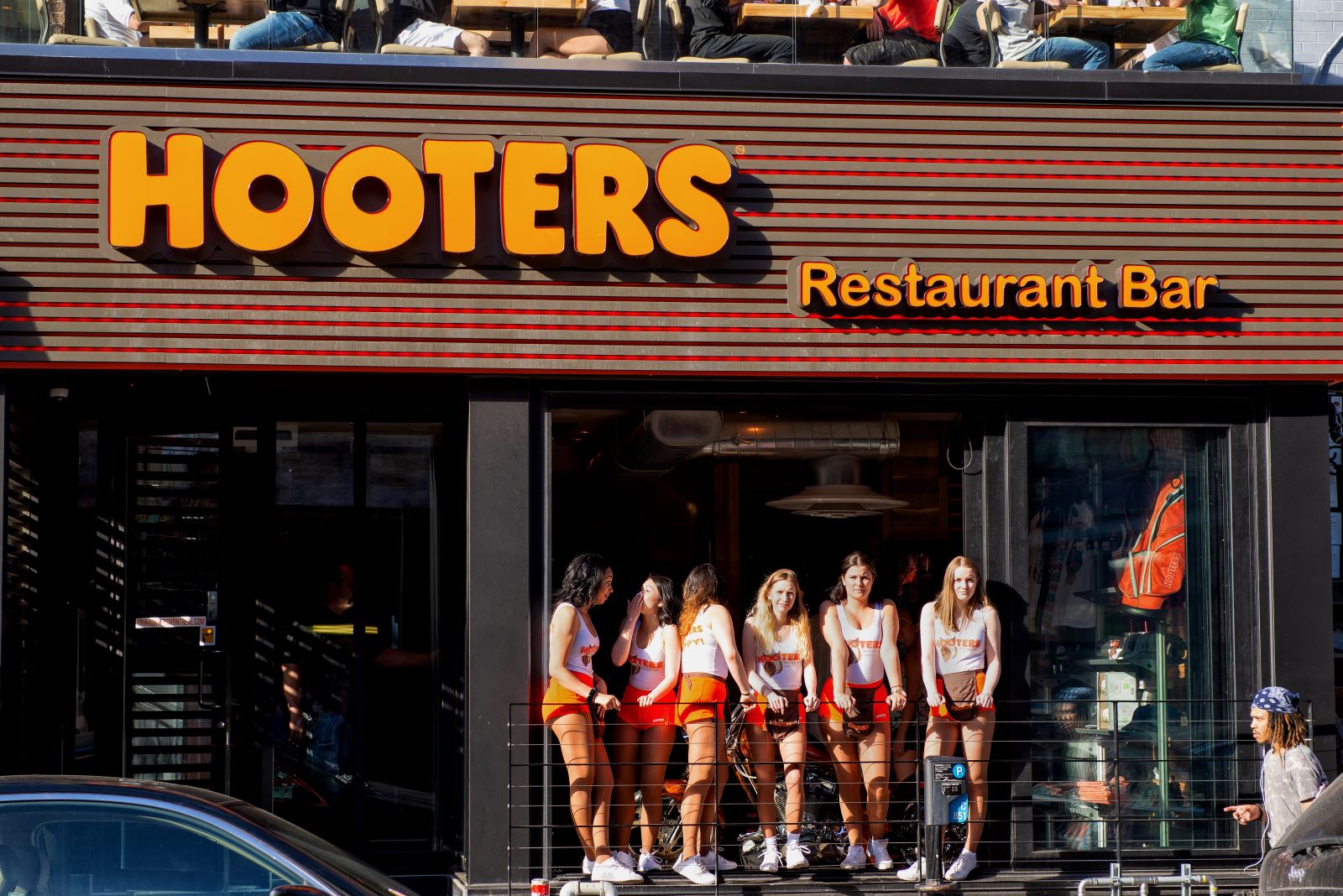American retail and dining is changing irreversibly. Iconic stores and restaurants that once defined the vibrancy of community life are now fading memories, leaving behind empty storefronts and a sense of loss. What future awaits the next generation in this era of closed doors?
1. Family Dollar

Family Dollar is facing substantial downsizing, planning to close over 600 stores by the end of 2024. This reduction represents about 10% of its total locations, directly attributed to persistent inflation which has notably affected its core low-income consumer base.
2. Red Lobster

Red Lobster is in the process of closing nearly 50 of its locations as it enters Chapter 11 bankruptcy. This decision came after a failed marketing strategy involving a permanent $20 endless shrimp deal, which the revenues could not sustain, severely undercutting profitability.
3. Stop & Shop

Stop & Shop, a staple in the Northeast with over 400 stores, has announced closures of “underperforming” locations as part of a strategy to optimize its network. Although the exact number of closures hasn’t been specified, the chain aims to enhance operational efficiency across remaining stores.
4. Applebee’s

Applebee’s will be closing between 25 and 35 restaurants this year. This decision affects less than 3% of its over 1,500 locations nationwide but reflects a strategic realignment towards higher profitability and operational efficiency in a competitive casual dining market.
5. The Body Shop

The Body Shop has shut down all 61 of its U.S. locations following a March bankruptcy filing. This closure represents a complete withdrawal from the U.S. market, as the retailer refocuses its efforts on markets in other regions like Canada.
6. CVS

CVS announced a strategic reduction plan in 2021, aiming to close approximately 900 stores by the end of 2024, which is about 10% of its nearly 9,000 stores nationwide. This initiative is designed to align the company’s physical footprint with evolving consumer needs and shopping behaviors.
7. Macy’s

Macy’s is closing over 100 stores, a significant cut given its roughly 550 total locations. This move is part of a broader strategy to exit underperforming malls and open smaller-format stores in more lucrative locales, aiming to adapt to changing shopping patterns.
8. Rue21

Rue21 is closing all its approximately 700 stores following its third bankruptcy filing in 20 years. The closures are a result of several compounded issues, including competition from online retailers, changing fashion trends, and operational inefficiencies.
9. Pier 1 Imports

Pier 1 Imports has closed all of its stores as part of its bankruptcy proceedings. At its peak, Pier 1 had over 1,000 stores, and its complete closure marks the end of a well-known home decor brand in the American retail landscape.
10. J.C. Penney

J.C. Penney is closing 154 stores as part of its bankruptcy restructuring process. These closures are aimed at stabilizing the company’s finances following a decline in consumer traffic and sales, particularly exacerbated by the COVID-19 pandemic.
11. Sears

Sears continues its long decline with plans to close an additional 28 stores this year, adding to the hundreds already shuttered in recent years. The company’s store count has plummeted from over 3,500 at its peak to just a fraction of that today.
12. Kmart

Kmart, a subsidiary of Sears Holdings, is also concluding operations at 45 locations this year. This move comes as the discount retailer struggles to find a sustainable business model in the face of persistent sales declines and competition.
13. Bed Bath & Beyond

Bed Bath & Beyond is closing 200 stores over the next two years as it seeks to cut costs and manage debt. This accounts for approximately 21% of its total locations, highlighting significant financial struggles.
14. Neiman Marcus

Neiman Marcus has closed 5 of its 43 stores following its bankruptcy filing, targeting underperforming stores as part of a plan to emerge leaner and more focused on high-end luxury markets.
15. GNC

GNC plans to close approximately 1,200 stores as it restructures under Chapter 11 bankruptcy. This represents nearly 20% of its worldwide operations, aimed at reducing debts and revitalizing its brand.
16. Guitar Center

Guitar Center is shuttering several stores as it reorganizes under bankruptcy. The music retailer has not specified the exact number but indicates a strategic focus on profitability and online sales.
17. Office Depot

Office Depot is closing 90 locations this year as part of its ongoing efforts to consolidate its operations and enhance profitability. This follows a broader trend of reducing physical office supply stores in favor of online sales.
18. Hooters

Hooters is planning to close up to 10 stores in underperforming markets, as the restaurant chain recalibrates its strategy amid changing consumer preferences and the challenging landscape of themed dining establishments.
Closing Time in Retail

As we witness these closures, a larger question looms: are these simply adjustments to a new retail norm, or indicators of a deeper economic shift? How will these closures affect the communities that once depended on these businesses for goods, services, and employment?
23 Steep Taxes Adding to California Residents’ Burden

California: a place of sunshine, innovation, and, unfortunately, some of the nation’s highest taxes. From LA’s beaches to Silicon Valley’s tech hubs, residents grapple with a maze of state taxes. Here’s a glance at 23 taxes that might surprise both Californians and outsiders. 23 Steep Taxes Adding to California Residents’ Burden
Cash in on Nostalgia: 21 Toys Now Worth a Fortune

Time to dust off the boxes and find that once-cherished toy from your childhood. For collectors and enthusiasts, these items have become valued objects, and they can be worth big bucks – are there any of these in your attic? Cash in on Nostalgia: 21 Toys Now Worth a Fortune
Millennials Don’t Buy These 19 Products Anymore

Millennials are changing consumer habits, quietly replacing once-staple products and traditions. Often criticized for their disruptive preferences, this generation is reshaping the marketplace with digital expertise, ethical buying, and a taste for the unconventional. Millennials Don’t Buy These 19 Products Anymore
Featured Image Credit: Shutterstock / Ivan Marc.
The content of this article is for informational purposes only and does not constitute or replace professional financial advice.
For transparency, this content was partly developed with AI assistance and carefully curated by an experienced editor to be informative and ensure accuracy.
